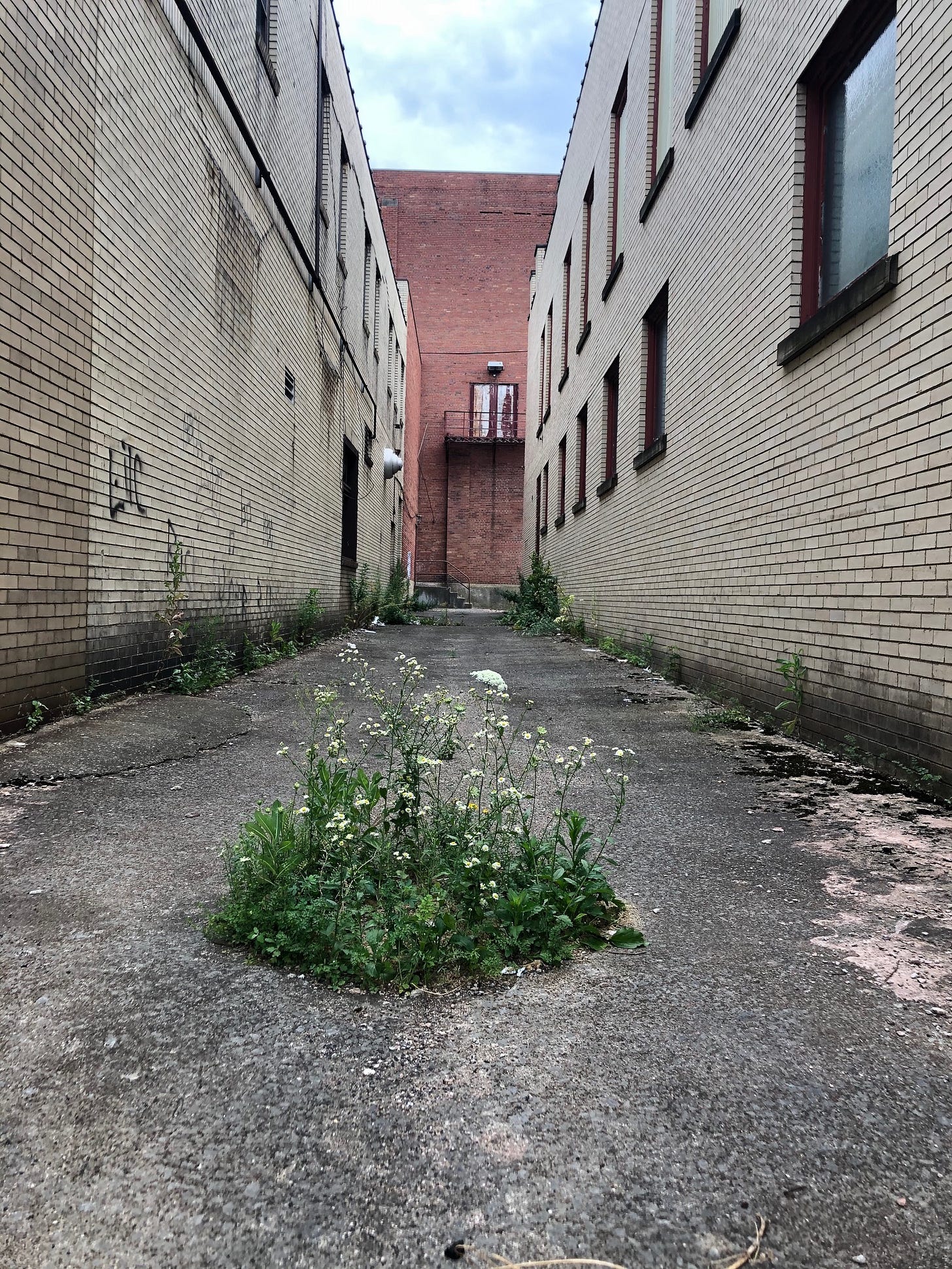
Hi all. I’m glad to be here with you, post-facebook (and pre-revolution?).
Rust and Reimagining has been a long time in the making.
It’s a project of generations, in the sense that this is how long it has taken to chart the rise and fall of the first American Gilded Age, and of the automation and industrial expansion that followed. It’s also a project of four years, which is the amount of time I’ve served as lead minister to a church (and in a very real way, to a building) that was a side project of one of the most ruthless industrialists of his time. And it’s a project of this particular, peculiar moment, in that we find ourselves in both a crisis and a crossroads for participatory democracy—what it means to have agency and to live meaningfully in this place, right now.
I have three graduate degrees (law, education, divinity), and sometimes I think about adding another. The truth, though, is that I happen to have three grad degrees for the same reason that I’m unsure how to further pursue these threads within academia: problems are unavoidably interdisciplinary in their genesis, in their reach, and in the ways that we might cope with and solve them.
Thus, this conversation will also weave fine some threads from what appear to be very different subject areas:
Urban ruin, including spotlighting some particular abandoned places, and the ways we rise, which will highlight the inspiration, complexity, and often the heartbreak of a community renewal process.
Participatory governance, of which real democracy is inextricably a part, and which is, I promise, infinitely more interesting than it sounds. We’ll talk about efficacy, legitimacy, and also in a limited sense about anarchy (which is not a political framework to which I feel drawn, large-scale, but which is a fairly compelling local response to system-breakdown, and observable right here in the U.S.; I think there are skills- creativity, resilience, demand for efficacy- that we truly need as citizens of a functional republic).
Gardening and food-growing, in general—the how, the why, the for whom, and the inevitable flows of old knowledge and new power as we engage in this ancient art of world-building.
Above all, this project is a set of “how” questions: How did things come to be as we find them? How is there so much around us that we consent not to see? How do we hold onto what is worth saving, repair what has been damaged, restore what has been taken? How do we live with what we have done and with what has been done in our names? How do we live joyfully and meaningfully (which so often means accountably) amid difficult truths and desecrated places?
How do we do reimagining that matters amid the rust of this world we inherit?
And, for those wondering why ‘progressive faith’ or ‘the institutional church’ or even ‘Unitarian Universalism’ (I am an ordained and currently-serving UU minister) didn’t merit a bullet point above, the answer is this: the tangible pieces I just outlined, together with the wrestling-with-God-and-ourselves questions I have enumerated: those are the work of progressive faith. There is no separation here. This learning, and the discernment that follows it, it will make theologians of us all. Welcome to it.
And so, thanks for joining me for the heart-wrestling amid the history lesson. Let our year of learning begin.
Jordinn
